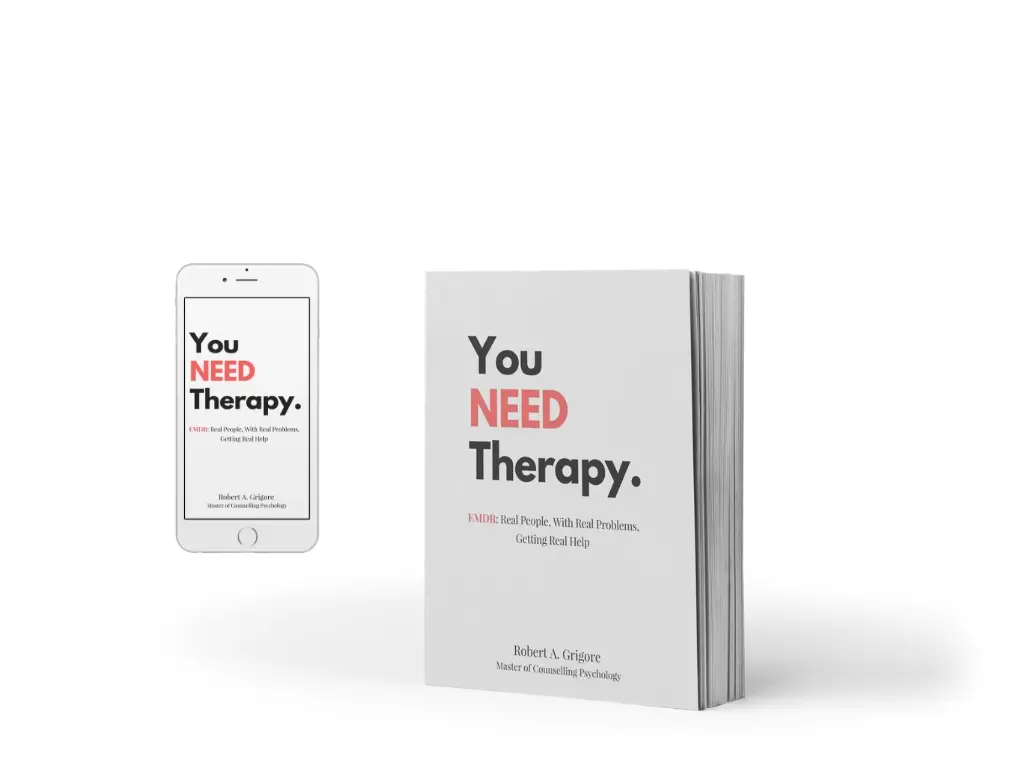How can I tell if EMDR will work for me? You’ve heard of EMDR. Maybe a friend swears by it. Maybe your therapist suggested it. Or maybe you’ve read a few headlines about its power to heal trauma. But here’s the question you’re really asking:
Will EMDR therapy actually work for me?
This is a deeply personal question. And it deserves a real answer, not hype, not jargon. So let’s walk through what EMDR is, who it helps, and how you can tell if it’s a good fit.
First, What Is EMDR?
Eye Movement Desensitization and Reprocessing (EMDR) is a trauma-focused therapy that helps the brain process distressing memories. Instead of just talking about your past, EMDR uses bilateral stimulation, like guided eye movements or tapping, to help your nervous system rewire how it responds.
It’s one of the most researched trauma therapies available.
And it’s more than just a tool—it’s a process that helps your brain heal in the way it was always meant to.
What Does EMDR Help With?
EMDR is well known for treating PTSD, but its reach goes further. Grigore Counselling offers it to help people with:
- Childhood trauma or neglect
- Anxiety and panic
- Phobias and irrational fears
- Grief and complicated loss
- Chronic pain with emotional roots
- Low self-worth or shame
- Sexual trauma
- First responder trauma
- Birth trauma
- Emotionally abusive relationships
If you’ve tried other therapies and feel like something still isn’t shifting, EMDR may access what’s been stuck.
Signs EMDR Might Work for You
So how can you tell if EMDR will work for you? There’s no single formula, but here are the signs that suggest you might benefit:
1. You have distressing memories that still feel raw
When something from your past plays in your mind like a movie, or your body reacts as if it’s still happening, EMDR may help bring resolution.
2. You’ve “talked it out,” but nothing changes
Many clients come to us saying, “I’ve been in therapy for years, but this still hurts.” EMDR doesn’t just process the story, it processes the emotional charge.
3. You notice patterns you can’t break
You keep choosing toxic relationships. Or reacting with rage. Or shutting down. EMDR helps you trace these reactions to their root, and release them.
4. Your body holds your trauma
Do you freeze under pressure? Panic during intimacy? EMDR works well when trauma is stored somatically.
5. You’re emotionally safe now, but still stuck
EMDR works best when you’re no longer in active crisis. If you’re ready to look back so you can move forward, that’s a green light.
When EMDR Might Not Be Right (Yet)
Sometimes, clients need a bit more preparation before starting EMDR. It doesn’t mean EMDR won’t work, it means timing matters.
EMDR may not be ideal right now if:
- You’re currently in a situation of abuse or danger
- You’re actively using substances to numb trauma
- You don’t yet feel stable enough to revisit distressing memories
- You struggle to stay present in your body
That’s why our therapists often integrate tools like DBT, somatic therapy, or ACT to build safety before going into EMDR. This is part of the preparation phase, and it’s just as important as the eye movements themselves.
What Makes EMDR Successful?
The success of EMDR depends on a few key things:
- Readiness: You’re motivated to heal and willing to face discomfort for a short time.
- A skilled therapist: EMDR is powerful, but it needs to be used properly. Our certified EMDR therapists follow a structured, trauma-informed protocol.
- Your nervous system: EMDR respects your pacing. You never go where your body isn’t ready to go.
- Consistency: Weekly sessions and practice between them make the process smoother.
Ready to Explore EMDR?
If you’re still asking, “How can I tell if EMDR will work for me?”, the best next step is to speak with a therapist trained in trauma.
Let’s talk about what you’re carrying, what you’ve already tried, and what healing could look like.
Book a consultation with one of our EMDR-trained clinicians. Let us help you decide whether this approach fits your story.
FAQ: Will EMDR Therapy Work for Me?
Does EMDR work for everyone?
Not always, but it works for many. Some people need stabilization first. Others may benefit more from a different approach. A therapist can help you decide based on your history and goals.
How long until I see results with EMDR?
Some clients feel relief in just a few sessions. Others need more time. It depends on the severity, complexity, and how long you’ve lived with the issue.
Can EMDR make things worse?
When done properly, no. EMDR can bring up painful memories, but your therapist will help regulate your nervous system and pace sessions for safety.










